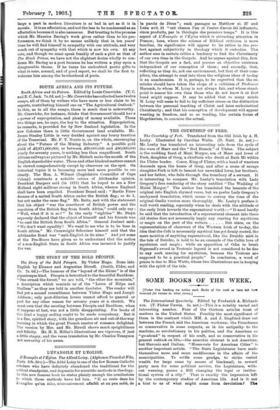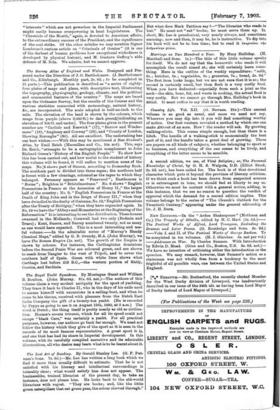SOME BOOKS OF THE WEEK.
[Under this heading we notice such Books of the week as have not been reserved for review in other forms.] The International Quarterly. Edited by Frederick A. Richard- son. (T. Fisher Unwin. 5s. net.)—This is a notably varied and interesting number. Four of the thirteen articles treat of matters in the United States. Possibly the most significant of them is the contrast which MIL A. and J. Siegfried draw out between the French aid the American workman: the Frenchman so conservative in some respects, as in his antipathy to the machine, so revolutionary in his politics, and the American so "go-ahead" in respect of his craft, and so conservative in his general outlook on lit e,—the anarchic element is not American, but Slavonic and Italian. "Home-rule for American Cities" is another important article. "The State Legislatures have made themselves more and more meddlesome in the affairs of the municipalities. To settle some grudge, to strike vested wealth for large sums by means of blackmail, to reward party men for some political. service, the Legislature, with- out warning, passes a Bill changing the legal or institu- tional system of a city." That is exactly the impression left by the contemporary studies of American life. And is it, not a hint to us of what might come from devolution? Tho
"interests" which are not powerless in the Imperial Parliament might easily become overpowering in local Legislatures. The "Chronicle of the Month," again, is devoted to American affairs, to the extraordinary success of the President, and the significance of the coal strike. Of the other articles we may mention Signor Lombroso's curious article on "Criminals of Genius" (it is one of the darkest of human problems how exceptional wickedness is developed by physical lesions), and M. Gustave Geffroy's able defence of M. Zola. We admire, but we cannot approve.











































 Previous page
Previous page